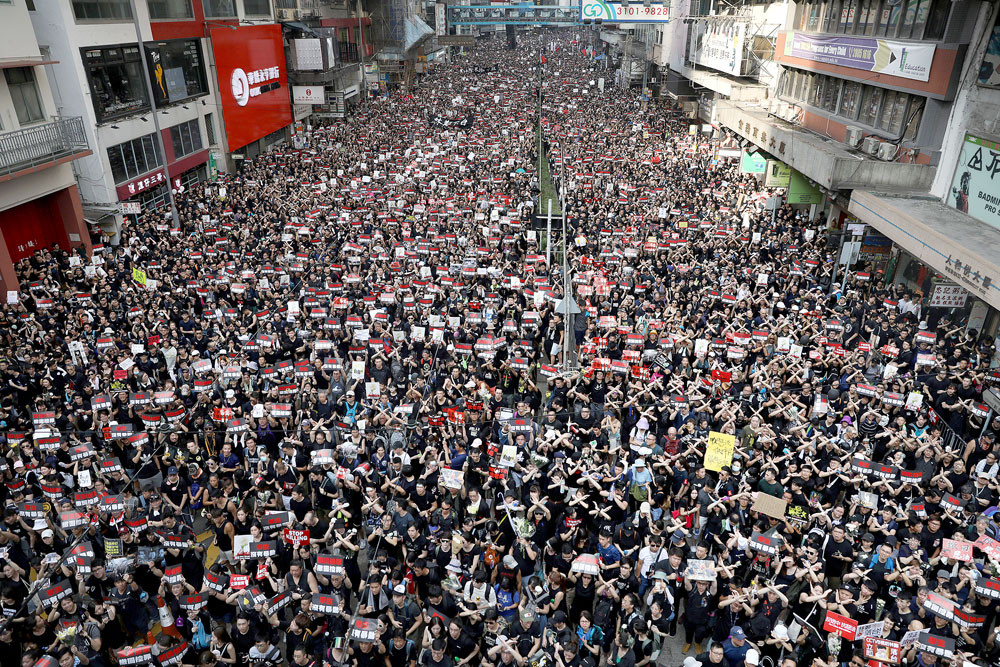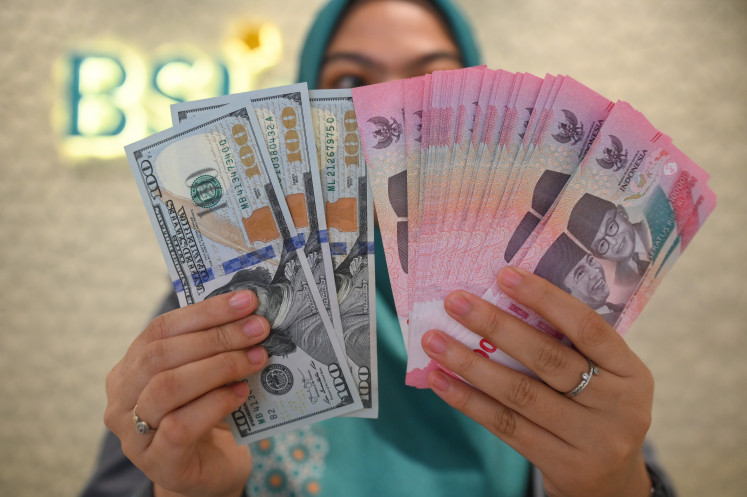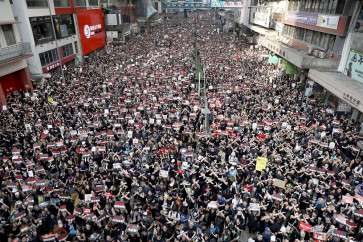Popular Reads
Top Results
Can't find what you're looking for?
View all search resultsPopular Reads
Top Results
Can't find what you're looking for?
View all search resultsExpanding civic space in Southeast Asia
Civic space is that open and inclusive space where citizens gather as equals, either physically or more often mentally, to converse about public matters and thus facilitate collective self-government through the exercise of public reason. #opinion
Change text size
Gift Premium Articles
to Anyone
 To the streets: Thousands of protesters dressed in black take part in a rally against a controversial extradition law proposal in Hong Kong. Public anger seethed following unprecedented clashes between protesters and police over the law, despite a climbdown by the city’s embattled leader. (AFP/Dale de la Rey)
To the streets: Thousands of protesters dressed in black take part in a rally against a controversial extradition law proposal in Hong Kong. Public anger seethed following unprecedented clashes between protesters and police over the law, despite a climbdown by the city’s embattled leader. (AFP/Dale de la Rey)
C
ivic space is that open and inclusive space where citizens gather as equals, either physically or more often mentally, to converse about public matters and thus facilitate collective self-government through the exercise of public reason. A healthy civic space, like a healthy democracy, requires that citizens can not only speak freely, but also participate fearlessly, without being intimidated by hate speech, for example.
The threats are multiple. First, majoritarianism has swelled, expressed mainly as religious and ethnic nationalism at the expense of minorities’ security. This is people power reduced to winner-take-all numbers game, instead of being balanced with protection for minorities.
Second, political opportunists exploit the public’s anxieties and grievances. They promise simple solutions to complex problems, and persuade the public to trust strong leaders instead of strong democratic institutions, including the institution of a free press.
Third, these same opportunists use identity politics to mobilize support, activating people’s ethnic and religious identities at the expense of a national civic consciousness. They cultivate an irrational fear of the other, thus polluting civic space with hate.
Fourth, institutions that we thought of as holding the center have lost influence. Centrist political parties, mainstream media, universities and public intellectuals don’t seem able to reason with large segments of society. It’s been said that fake news, hoaxes and disinformation campaigns are causing this loss of influence.
But lies have always been a feature of the information environment, so if they are growing in power that’s probably an effect and a symptom, not simply a cause, of declining trust in the establishment.
Fifth, we now realize that nations have short memories. We used to believe that positive lessons from past struggles would be etched into our nations’ DNA, and that we would never again repeat old mistakes. I call this the myth of “never-againism”.
















